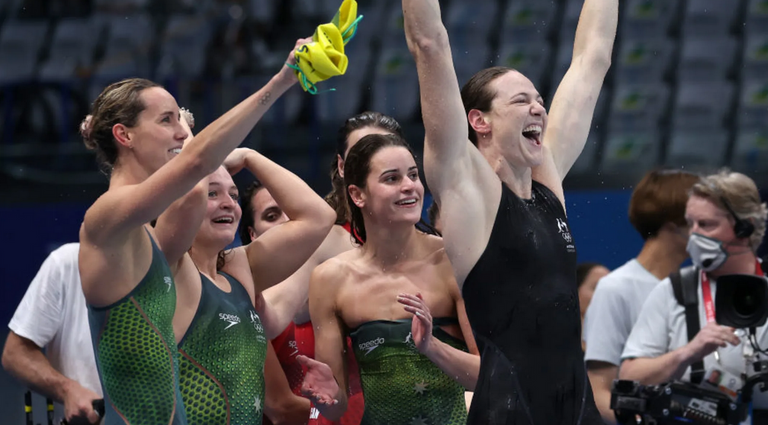
Es muy normal que cuando nos referimos a determinados países, deportivamente hablando, los identificamos con un deporte en particular.
Los medios de comunicación, los mass media, que en la actualidad ya no son solo diarios y televisión, sino un verdadero conglomerado multimedial, contribuyen mucho a ello.
En nuestro diario vivir nos encontramos con que Brasil y Argentina en Latinoamérica y España, Italia, Alemania e Inglaterra son sinónimo de fútbol. En cualquier sintonía y en cualquier medio.
EE. UU. es, por antonomasia, el país del basquetball como India lo es en el cricket, los países nórdicos europeos en el curling y en general en los deportes sobre la nieve y asì sucesivamente vamos configurando ideas, conceptos y hasta prejuicios relacionados con la idea país-deporte.
Ya que estamos en la recta final de los Juegos Olímpicos me quiero detener para hacer un análisis muy simple en un país: Australia y en un deporte: natación.
Considerando además que los Juegos Olímpicos que hoy son tapa de todos los medios de comunicación dentro de pocos días pasarán al olvido y no nos volveremos a recordar de ellos hasta dentro de cuatro años. A diferencia de otros deportes que llenan páginas, pantallas y medios digitales todos los días del año.
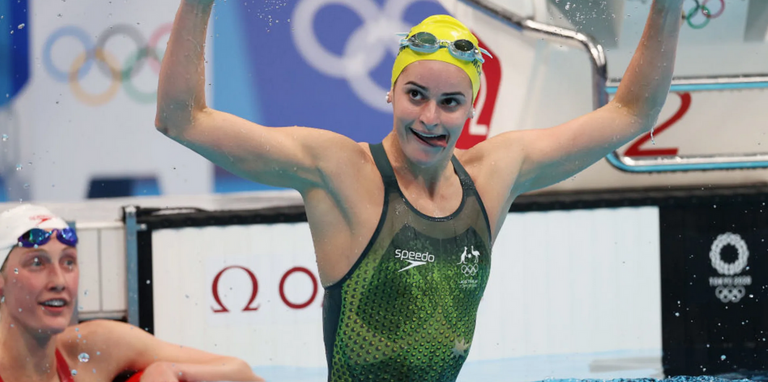
It is quite normal that when we refer to certain countries, sports-wise speaking, we identify them with a particular sport.
The media, the mass media, which nowadays are not only newspapers and television, but a true multimedia conglomerate, contribute a lot to this.
In our daily life we find that Brazil and Argentina in Latin America and Spain, Italy, Germany and England are synonymous with soccer. In any tuning and in any media.
The USA is, par antonomasia, the country of basketball as India is in cricket, the Nordic European countries in curling and in general in snow sports and so on, we are configuring ideas, concepts and even prejudices related to the country-sport idea.
Since we are in the final stretch of the Olympic Games I want to stop to make a very simple analysis in a country: Australia and in a sport: swimming.
Considering also that the Olympic Games that today are on the cover of all the media will be forgotten in a few days and we will not remember them again for another four years. Unlike other sports that fill pages, screens and digital media every day of the year.
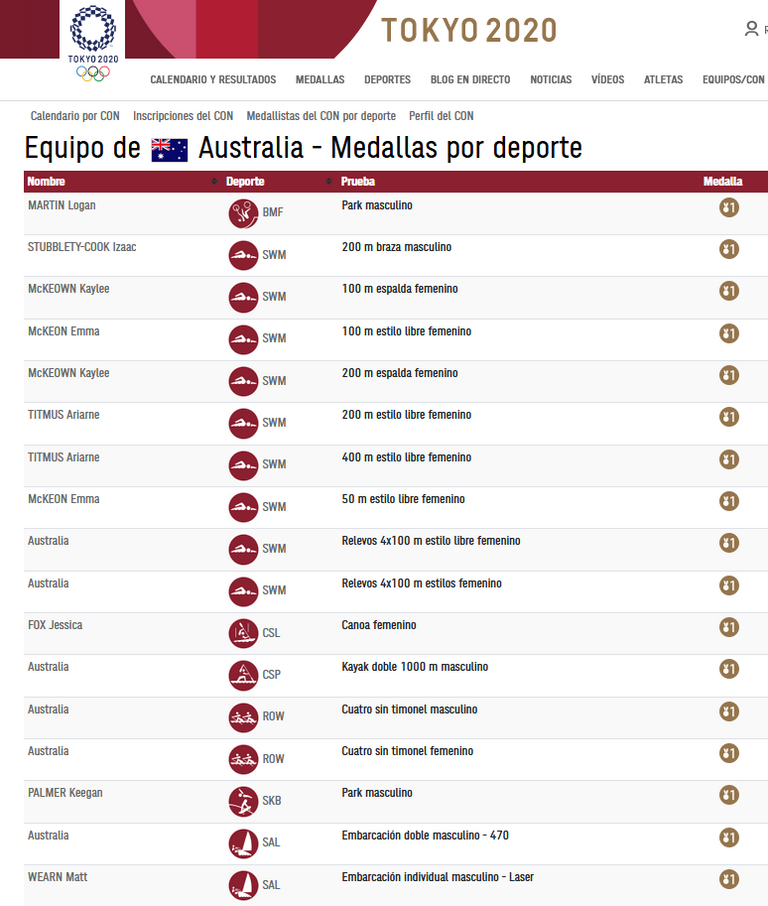
Australia olímpica. / Olympic Australia.
Como es habitual Australia está disputandos unos Juegos Olímpicos dentro de lo que se podría llamar "en la norma". Ubicada dentro de los diez primeros países en el medallero general ostenta de generaciones esa posición más o menos inalterada.
Es más, podríamos decir del quinto al décimo lugar, ya que históricamente los cinco primeros lugares han correspondido (casi) siempre a Estados Unidos, Rusia (ROC en estas Olimpíadas), Japón, China (la sorpresa de las últimas décadas antes de ella su puesto lo ocupaba Alemania) y el Reino Unido.
Qué hay detrás de este secreto olímpico de Australia que ha hecho que el 70% de sus medallas correspondan a este deporte?
Al momento en que publico este post Australia está sexta en el Medallero General disputándole el quinto punto a ROC (Rusia). Con la misma cantidad de medallas de oro pero menos de plata que los rusos. Detrás de ella Italia está a siete medallas de oro. Imposible que Italia mejore su ubicación.
De esas 17 medallas de oro 9 corresponden a la natación, 2 a la vela y 4 a canotaje y kayak.
Vamos a las estadísticas ya que soy un apasionado de ellas: el 53% de las medallas doradas son específicamente de natación. Pero si extendemos el análisis a natación + deportes náuticos llegamos a 15 medallas de oro sobre las 17 totales obtenidas: el 88%, muy cerca del total. Una supremacía total concentrada en los deportes acuáticos (natación incluída). Con eso le es suficiente para estar entre los 5-6 primeros países en los Juegos Olímpicos.
Para que tengamos una idea de esta verdadera hazaña austrialiana va unb dato más: el total de las medallas doradas a otorgar en esta disciplina son 35 (17 competencias hombres/mujeres más una competencia mixta).
De esas 35 preseas doradas Australia ha ganado hasta la fecha 9. Un solo país que gana el 26% de las medallas en juego. Fuera de lo común.
Casualidad? Suerte? Nada de eso.
Ya en el mes de junio del año pasado la selección australiana de natación estaba lista para competir entrenada por el holandés Jacco Verhaeren que tuvo que regresar a su país por la pandemia.
No obstante la incertidumbre reinante sobre la realización de los Juegos, Austria siguió fiel a su programa. reemplazó a Verhaeren Rohan Taylor que hasta ese momento era el entrenador de los estados de Tasmania y Victoria, los que llevan la mayor cantidad de atletas.
Su objetivo era potenciar los herederos del inolvidable Ian Thorpe: Mack Horton y Ariarne Titmus, junto a las experimentadas hermanas Cate y Bronte Campbell.
Y los resultados se están viendo. Con triunfos y récords olímpicos productos del trabajo serio y organizado.
Katie Ledecky, había llegado como fvorita con sus cinco medallas olímpicas. Sin embargo la nadadora australiana Ariarne Titmus se ha convertido en la gran figura en las los Juegos Olímpicos Tokyo 2020.
Pero quien se ha convertido en la estrella absoluta en la natación en estos juegos es Emma McKeon quien ha escrito su propia historia al convertise en la primera nadadora en ganar siete medallas en unos Juegos Olímpicos. Es necesario aclarar que es australiana?
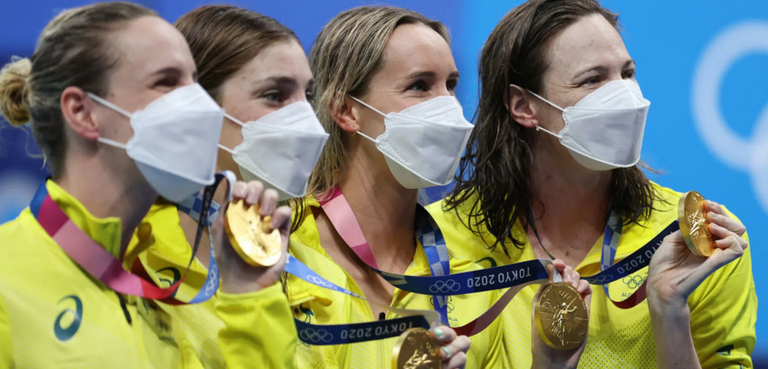
As usual, Australia is competing in an Olympic Games within what could be called "in the norm". Placed in the top ten countries in the overall medal table, it has held this position more or less unchanged for generations.
In fact, we could say from fifth to tenth place, since historically the top five places have (almost) always corresponded to the United States, Russia (ROC in these Olympics), Japan, China (the surprise of the last decades before it, its place was occupied by Germany) and the United Kingdom.
What is behind Australia's Olympic secret that has made 70% of its medals come from this sport?
At the time of publishing this post, Australia is sixth in the overall medal standings, disputing the fifth place with ROC (Russia). With the same amount of gold medals but less silver medals than the Russians. Behind them Italy is seven gold medals behind. Impossible for Italy to improve its position.
Of those 17 gold medals 9 are in swimming, 2 in sailing and 4 in canoeing and kayaking.
Let's go to the statistics since I am passionate about them: 53% of the gold medals are specifically from swimming. But if we extend the analysis to swimming + nautical sports we arrive at 15 gold medals out of the 17 total obtained: 88%, very close to the total. A total supremacy concentrated in water sports (swimming included). This is enough to be among the top 5-6 countries in the Olympic Games.
To give us an idea of this true Austrian feat, here is one more fact: the total number of gold medals to be awarded in this discipline is 35 (17 male/female competitions plus one mixed competition).
Of those 35 gold medals, Australia has won 9 to date. A single country winning 26% of the medals at stake. Out of the ordinary.
Coincidence? Luck? Nothing of the sort.
Already in June last year, the Australian swimming team was ready to compete, coached by Dutchman Jacco Verhaeren, who had to return home because of the pandemic.
Despite the uncertainty about the Games, Austria stuck to its program. Verhaeren was replaced by Rohan Taylor, who until then had been the coach of the states of Tasmania and Victoria, the states with the largest number of athletes.
His goal was to develop the heirs of the unforgettable Ian Thorpe: Mack Horton and Ariarne Titmus, along with the experienced sisters Cate and Bronte Campbell.
And the results are showing. With triumphs and Olympic records as a result of serious and organized work.
Katie Ledecky, had arrived as the frontrunner with her five Olympic medals. However, the Australian swimmer Ariarne Titmus has become the great figure in the Tokyo 2020 Olympic Games.
But who has become the absolute star in swimming at these games is Emma McKeon who has written her own history by becoming the first swimmer to win seven medals at the Olympic Games. Needless to say, she is Australian?
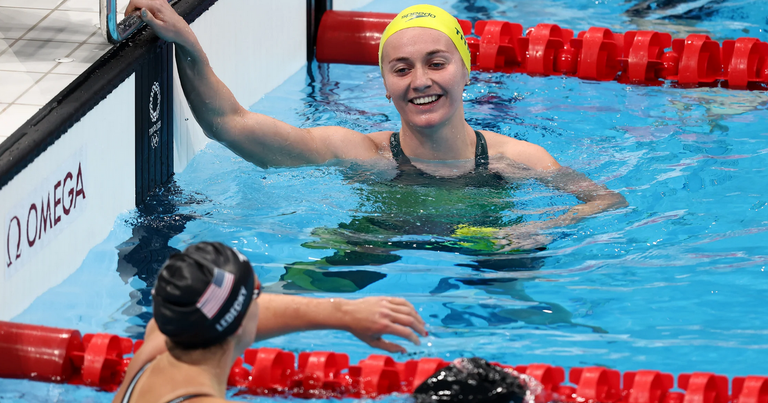

El crédito por el banner general con los distintos deportes va a Unsplash -modificado por el autor con el logo oficial de los Juegos Olímpicos Tokio 2020-
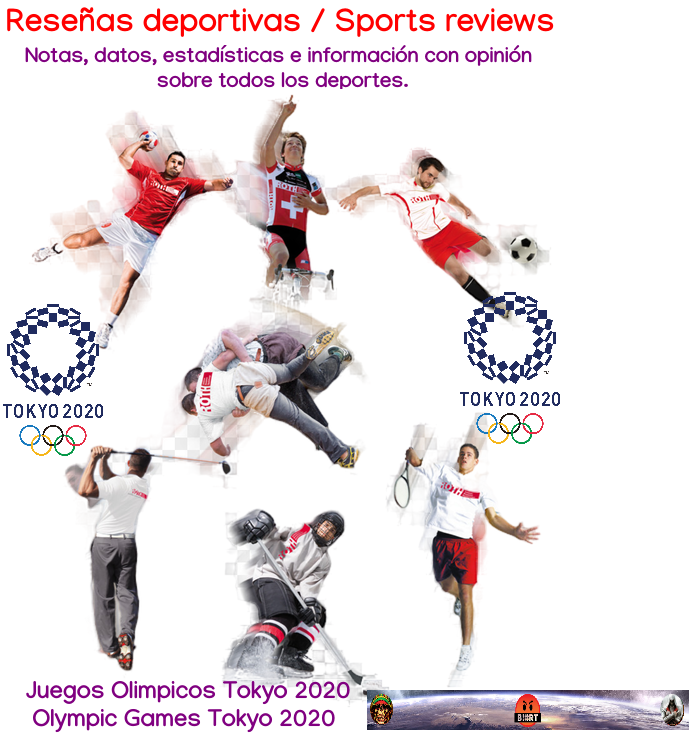

Los enlaces de mis sitios web/Links to my websites:
Parcial o totalmente pueden encontrar este post reproducido en algunos de mis blogs y/o Webs de los cuales generalmente tomo nota para elaborar los contenidos en #BLURT.
Partially or totally you can find this post reproduced in some of my blogs and/or Webs of which I usually take note to elaborate the contents in #BLURT.

Upvoted. Thank You for sending some of your rewards to @null. Read my last posts to make sure that BLURT burning is profitable for you. Before using this bot please make sure your account has at least 100 BP. Get more BLURT:
@ mariuszkarowski/how-to-get-automatic-upvote-from-my-accounts@ blurtbooster/blurt-booster-introduction-rules-and-guidelines-1699999662965@ nalexadre/blurt-nexus-creating-an-affiliate-account-1700008765859@ kryptodenno - win BLURT POWER delegationNote: This bot will not vote on AI-generated content
Thanks!!